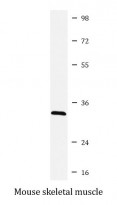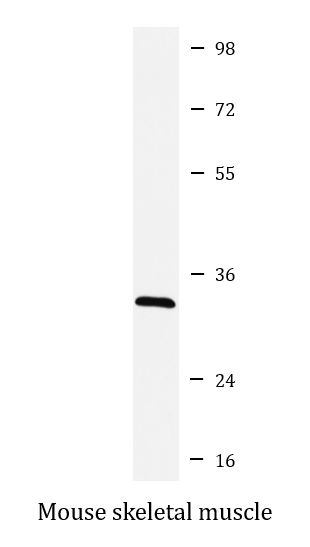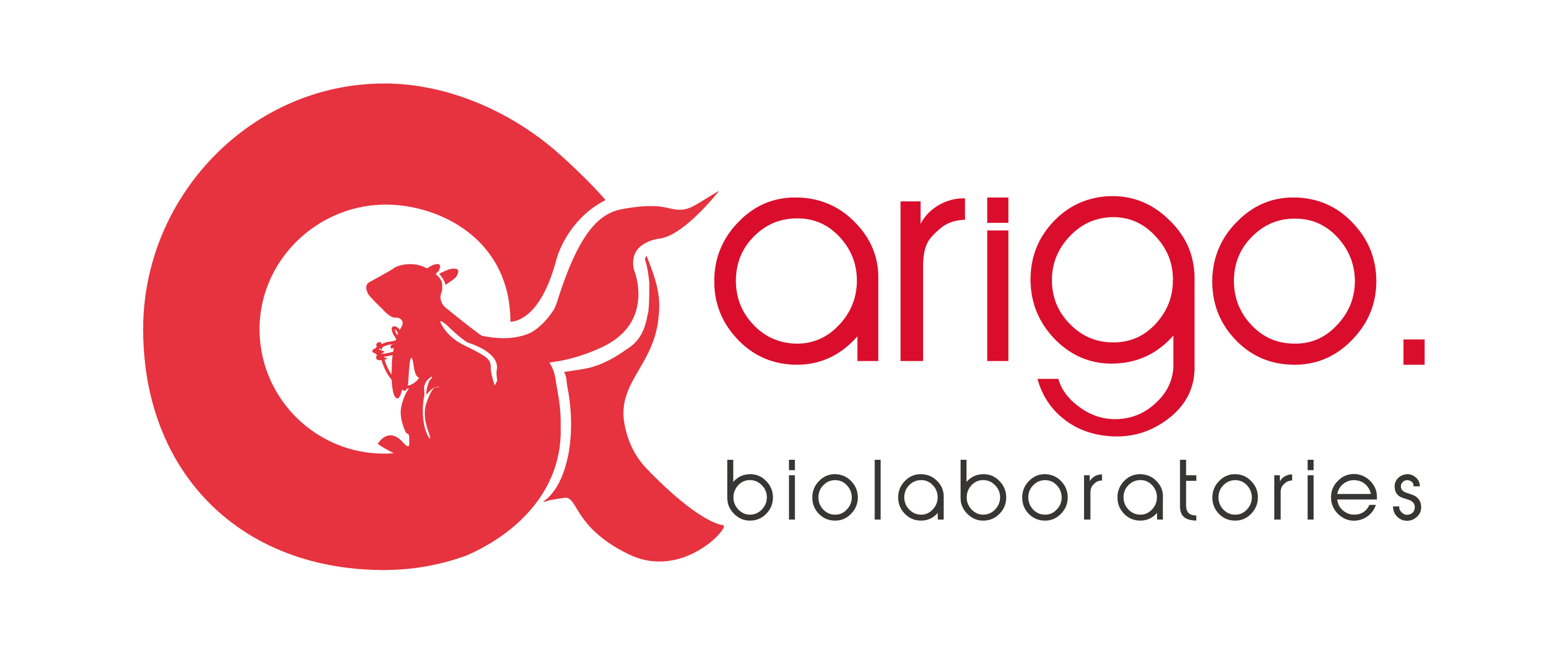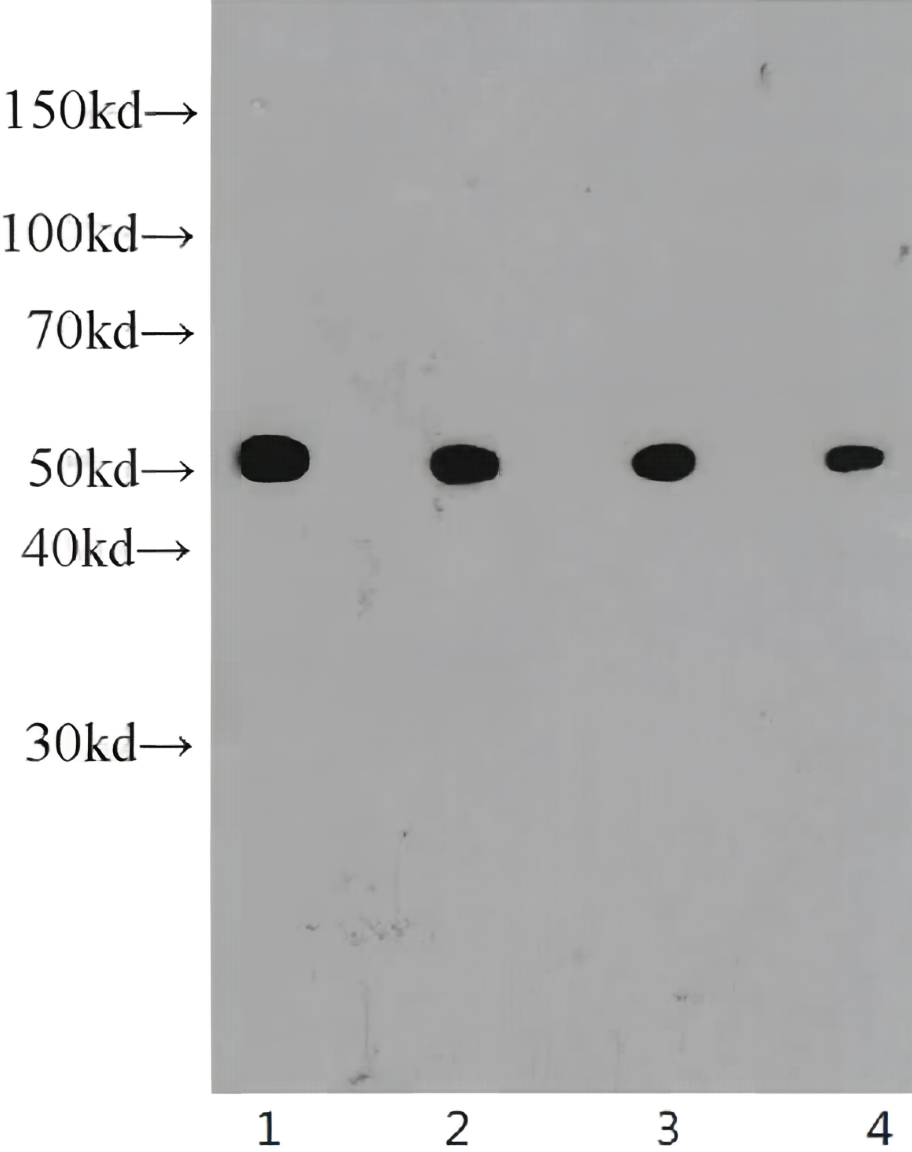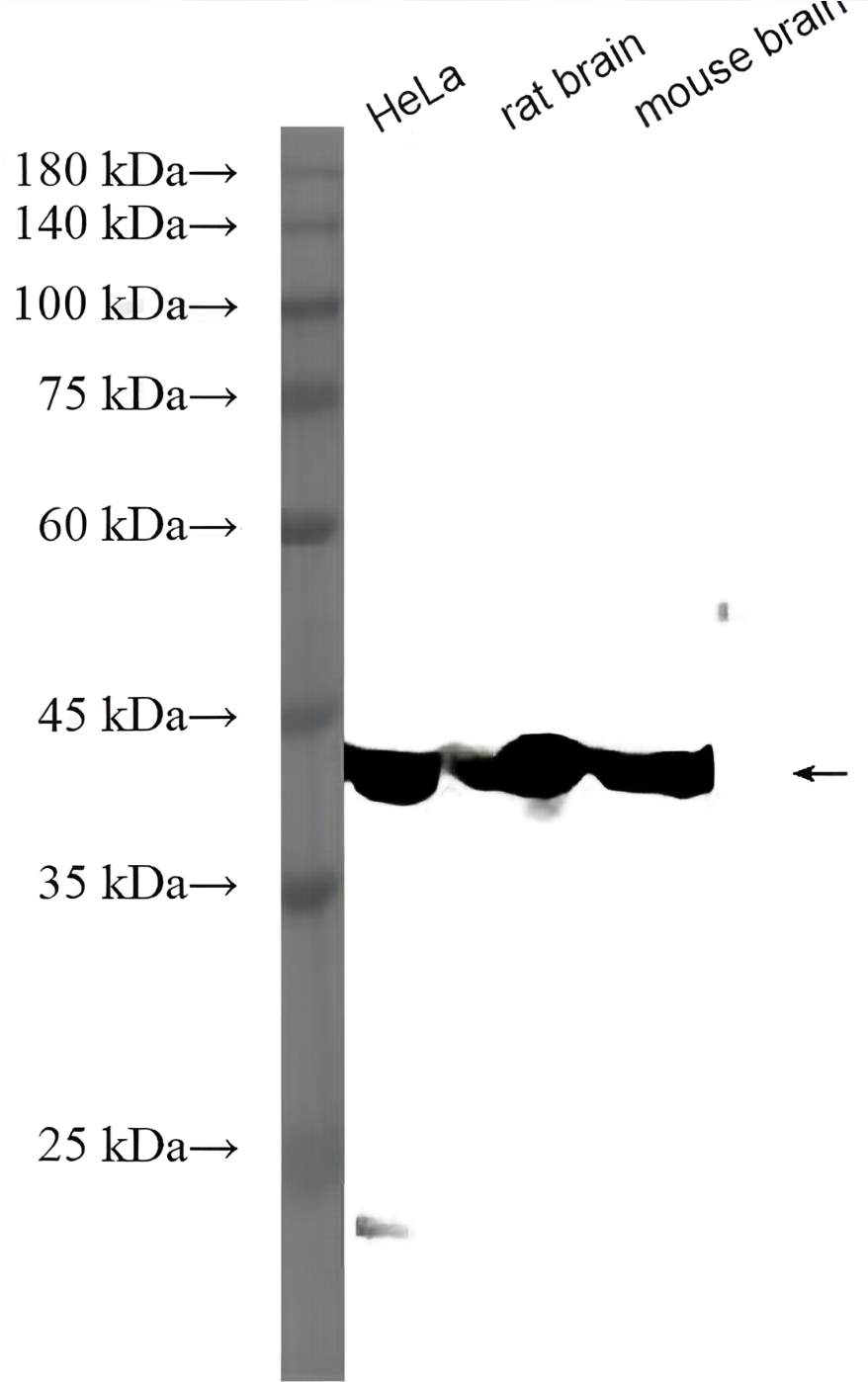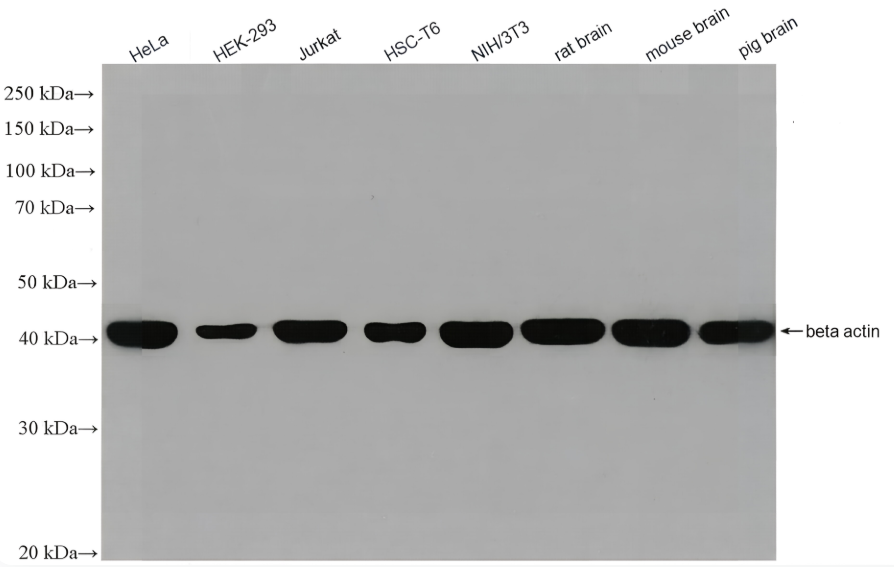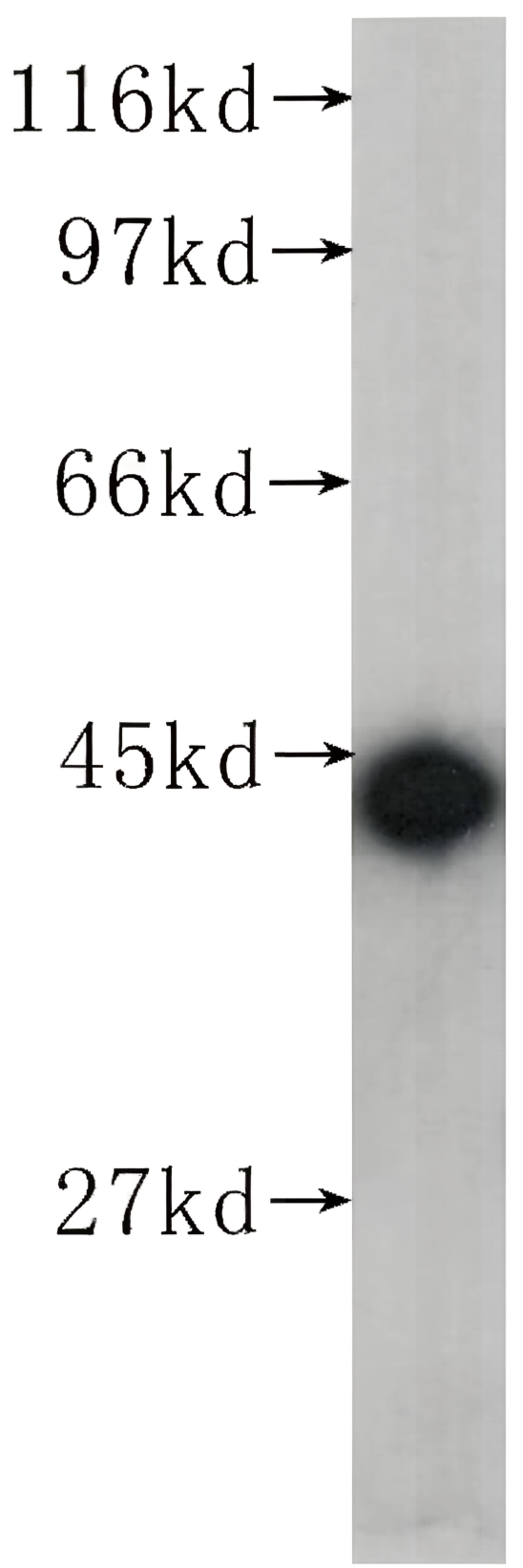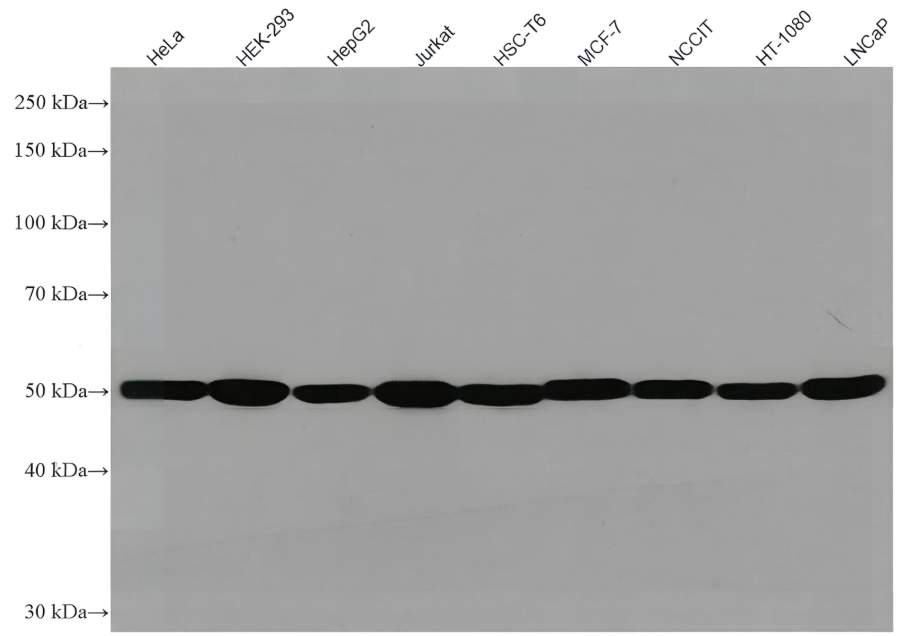anti-UCP1 + UCP3 antibody
CAT.NO. : ARG42001
US$ Please choose
US$ Please choose
Size:
Trail, Bulk size or Custom requests Please contact us
*产品价格可能会有所调整,请以品牌方官网实时更新的价格为准,以确保准确性。
概述
| 产品描述 | Rabbit Polyclonal antibody recognizes UCP1 + UCP3 |
|---|---|
| 反应物种 | Ms, Rat |
| 应用 | IP, WB |
| 宿主 | Rabbit |
| 克隆 | Polyclonal |
| 同位型 | IgG |
| 靶点名称 | UCP1 + UCP3 |
| 抗原物种 | Human |
| 抗原 | Synthetic peptide of Human UCP1 + UCP3. |
| 偶联标记 | Un-conjugated |
| 別名 | UCP1: UCP; SLC25A7; Thermogenin; Mitochondrial brown fat uncoupling protein 1; Solute carrier family 25 member 7; UCP 1 UCP3: Solute carrier family 25 member 9; SLC25A9; UCP 3; Mitochondrial uncoupling protein 3 |
应用说明
| 应用建议 |
| ||||||
|---|---|---|---|---|---|---|---|
| 应用说明 | * The dilutions indicate recommended starting dilutions and the optimal dilutions or concentrations should be determined by the scientist. | ||||||
| 阳性对照 | Mouse skeletal muscle | ||||||
| 实际分子量 | ~ 33 kDa |
属性
| 形式 | Liquid |
|---|---|
| 纯化 | Affinity purified. |
| 缓冲液 | PBS (pH 7.4), 150 mM NaCl, 0.02% Sodium azide and 50% Glycerol. |
| 抗菌剂 | 0.02% Sodium azide |
| 稳定剂 | 50% Glycerol |
| 存放说明 | For continuous use, store undiluted antibody at 2-8°C for up to a week. For long-term storage, aliquot and store at -20°C. Storage in frost free freezers is not recommended. Avoid repeated freeze/thaw cycles. Suggest spin the vial prior to opening. The antibody solution should be gently mixed before use. |
| 注意事项 | For laboratory research only, not for drug, diagnostic or other use. |
生物信息
| 基因名称 | UCP1; UCP3 |
|---|---|
| 全名 | uncoupling protein 1 (mitochondrial, proton carrier) uncoupling protein 3 (mitochondrial, proton carrier) |
| 背景介绍 | Mitochondrial uncoupling proteins (UCP) are members of the family of mitochondrial anion carrier proteins (MACP). UCPs separate oxidative phosphorylation from ATP synthesis with energy dissipated as heat, also referred to as the mitochondrial proton leak. UCPs facilitate the transfer of anions from the inner to the outer mitochondrial membrane and the return transfer of protons from the outer to the inner mitochondrial membrane. They also reduce the mitochondrial membrane potential in mammalian cells. Tissue specificity occurs for the different UCPs and the exact methods of how UCPs transfer H+/OH- are not known. UCPs contain the three homologous protein domains of MACPs. UCP1: This gene is expressed only in brown adipose tissue, a specialized tissue which functions to produce heat. [provided by RefSeq, Jul 2008] UCP3: This gene is primarily expressed in skeletal muscle. This gene's protein product is postulated to protect mitochondria against lipid-induced oxidative stress. Expression levels of this gene increase when fatty acid supplies to mitochondria exceed their oxidation capacity and the protein enables the export of fatty acids from mitochondria. UCPs contain the three solcar protein domains typically found in MACPs. Two splice variants have been found for this gene.[provided by RefSeq, Nov 2008] |
| 生物功能 | UCP are mitochondrial transporter proteins that create proton leaks across the inner mitochondrial membrane, thus uncoupling oxidative phosphorylation from ATP synthesis. As a result, energy is dissipated in the form of heat. [UniProt] |
| 细胞定位 | UCP1 and UCP3: Mitochondrion inner membrane; Multi-pass membrane protein. [UniProt] |
| 预测分子量 | UCP1: 33 kDa UCP3: 34 kDa |
| 翻译后修饰 | UCP1: May undergo sulfenylation upon cold exposure. May increase the sensitivity of UCP1 thermogenic function to the activation by noradrenaline probably through structural effects. May undergo ubiquitin-mediated proteasomal degradation. [UniProt] |
 New Products
New Products




